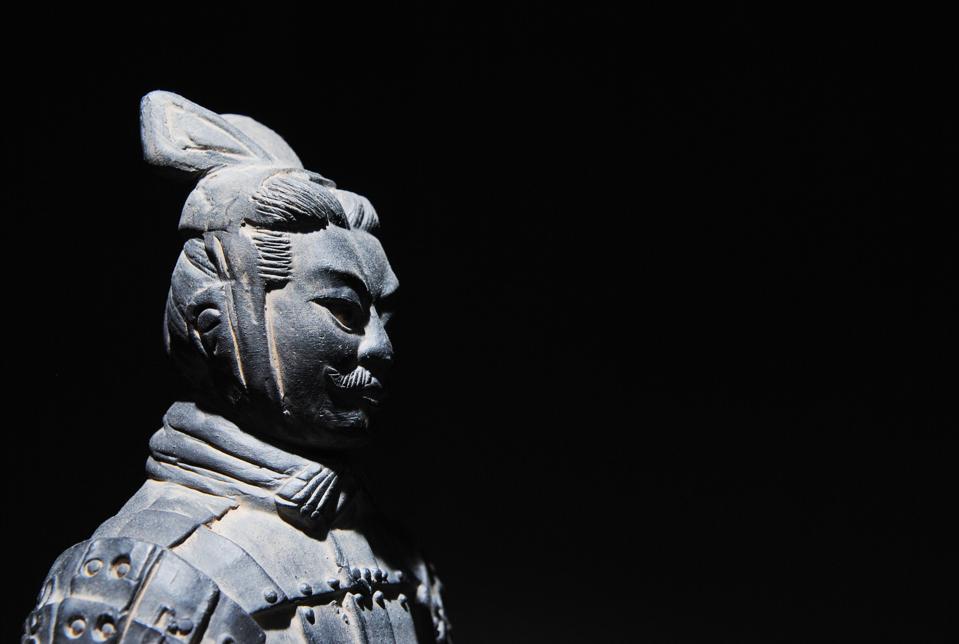“Convincing is not winning; it’s making the other person see the world as you see it, even if only for a moment.”
Private reflection of LBJ, 1965
Lyndon Baines Johnson (1908-1973) was the most contradictory American president of the 20th century. A legislative titan who pushed the most ambitious civil rights agenda since Lincoln, but also the architect of the escalation in Vietnam; a virtuoso of personal dealings who failed in global diplomacy. His negotiating style—a mix of physical intimidation, calculated favors, and ruthless pragmatism—offers timeless lessons about power and its limits.
This analysis seeks to serve not as judgment, but as a mirror for those negotiating in complex crises: even the most skilled can fall when they confuse power with omnipotence.
The Origins: Learning to Negotiate in the Powder Keg of Texas:
Born in the rocky hills of Texas, Johnson quickly learned that survival depended on reading people. His father, a fallen politician, taught him the art of “reciprocal favors”: “No one gives anything for nothing, Lyndon. But if you make them think they do, you’ll win twice.”
LBJ’s childhood in the barren lands of Stonewall was his first school of negotiation. The son of a ruined politician, he learned that power was not asked for, but taken. “I saw my father beg for votes at the livestock fairs,” he would later recall. “Men despised him for smiling while they humiliated him. I swore I would never kneel.”
As a young teacher at a Mexican school in Cotulla, he discovered his secret weapon: human connection. “I would wash the children’s faces before class,” he would confess decades later. “I wanted them to feel that someone believed in them.” This duality—an ability for tenderness and calculated cruelty—would define his career.
In the dusty streets of Johnson City, young Lyndon learned that words were currency, but actions were pure gold. As principal of a small school in Cotulla, a predominantly Mexican area, he discovered the transformative power of personal attention. “I bought baseballs with my own salary,” he would later remember with a cracked voice. “I wanted them to know that someone saw them.”
This ability for human connection would become his hallmark. During his first congressional campaign in 1937, Johnson didn’t promise grand speeches. Instead, he visited every house, remembered every name, shook every hand as if it were the most important. “He knew that Mrs. Ferguson had lost her son in the war, that old Thompson suffered from rheumatism,” his assistant would later recount. “Lyndon made every voter feel like they were the only one that mattered.”
Lyndon Baines Johnson’s presidency was like a wild Texas river: sweeping everything in its path, carrying both fertile sediments and destructive debris. His negotiating style, carved in the barren hills of his childhood and polished in the corridors of power, represented a unique blend of wild intuition and meticulous calculation. He was a man who could genuinely cry while telling stories about poor children, while simultaneously manipulating a colleague with the precision of a surgeon.
The Senate: Where a Negotiating Legend Was Born:
When Johnson arrived in the Senate in 1949, he quickly realized that real power did not reside in pompous speeches, but in the side halls, private exchanges, and backstage whispers. He developed what journalists would call “The Johnson Treatment,” a hypnotic blend of persuasion, intimidation, and psychological seduction.
But behind this façade of verbal torrent lay an exceptional strategic mind. Johnson carried detailed mental maps of the weaknesses, ambitions, and pressure points of each colleague. He knew that Senator Russell needed to feel like the supreme defender of the South, that Senator Humphrey craved intellectual recognition, and that certain colleagues responded better to emotional appeals than logical arguments.
The Senate School of American Politics: (1949-1961):
As the leader of the Democratic majority, Johnson perfected what he called “the treatment.” This treatment consisted of a rather personal and varied system of acting. His years as Majority Leader (1955-1961) became legendary. Capitol Hill correspondents dubbed his tactics “The Johnsonian Treatment.” He used:
The Use of Physical Tactics:
He invaded personal space (with absolute disregard for proximity), grabbed lapels, shook his interlocutors, and used his 6’6″ height to intimidate. He was directly overwhelming from a physical perspective. It was like a form of “physical assault.” Witness accounts describe almost theatrical scenes: Johnson, towering over a shorter colleague, one hand on their shoulder, the other gesturing emphatically, while a barrage of arguments, compliments, and veiled threats fell upon the unsuspecting interlocutor. “It was like being hit by a freight train shouting compliments,” described a Republican Senator.
Personal Information as Weapons:
He memorized the lives of many of his colleagues, both from his own party and the opposition, to appeal to their insecurities (e.g., “I knew Dick Russell needed to feel like the most Southern of all, so I’d let him win on that”). He also knew that Senator Richard Russell, a segregationist but solitary man, craved companionship. Johnson would organize private dinners, serving his favorite bourbon before asking for votes on civil rights.
The Use of Time as Strategy:
For example, he would force votes at 3 a.m. when his opponents were exhausted.
He had a particular genius for dominating Congress, not necessarily elegant, with most people considering him rather ordinary—where he knew the name of every wife and child—and in many cases, he clashed with cultures where his methods were seen as grotesque.
Calculated Theatricality:
In 1957, to force the Civil Rights Act, he pretended to have a heart attack on the Senate floor. Doctors found his blood pressure normal, but the spectacle had worked.
The Sole of the Shoe, Vietnam. A Negotiation He Never Understood and His Main Advisers Didn’t Help Much:
Johnson’s tragedy was applying legislative tactics to an asymmetric war. He believed Vietnam would be like convincing a reluctant senator: enough pressure and calculated concessions would yield results. His attempts to apply legislative tactics to the war were both pathetic and moving. He ordered stepped-up bombings as if they were “incentives” in a negotiation, unaware that Ho Chi Minh was not a Southern senator who could be convinced with political favors. When his generals asked for more troops, Johnson sometimes received them in his pajamas, attempting to create an atmosphere of intimacy to facilitate an agreement, not realizing he was dealing with a completely foreign culture.
There are some chronicles that elaborate on his style, acting, and, in some cases, confusion, illustrating the climate of the time:
The air in the Cabinet Room was thick that July of 1965 when Lyndon Johnson, sweaty and with his tie undone, leaned over the mahogany table to fix his gaze on each of his generals. “Don’t bring me Harvard theories on limited wars,” he roared as he pounded the Vietnam map with his ink-stained finger. “Tell me how we win this!” The scene encapsulated the whole man: a natural negotiator who transformed the U.S. Congress, but found the limits of his methods in the Asian jungle.
The Most Important of His Mistakes, Perhaps the Fundamental Mistake:
Johnson approached Vietnam as yet another legislative problem: “If I convince enough generals and congressmen, I will win.” He never understood that the North Vietnamese were not playing the same game.
The use of failed tactics was overwhelming, with numerous examples:
The Gulf of Tonkin Incident (1964):
In early August 1964, the U.S. military sent the USS Maddox warship on August 2, approximately 45 kilometers off the coast of North Vietnam, in the Gulf of Tonkin. Three torpedo-equipped patrol boats from the North Vietnamese army were deployed to intercept the U.S. ship. Captain John J. Herrick’s orders were to open fire if the boats came within 10 kilometers. The incident ended with an exchange of fire in which the North Vietnamese boats forced the U.S. ship to change course after launching their torpedoes. The support from American aviation, which deployed three fighter jets from a nearby aircraft carrier, severely damaged the boats’ infrastructure, forcing them to retreat to base with four of their soldiers dead.
Two days later, the U.S. Navy sent the USS Maddox back to the North Vietnamese coast, this time less than 20 kilometers away and escorted by the USS Turner Joy destroyer. During the night, poor sea conditions and adverse weather caused confusion with radar and sonar signals, leading the officers to mistakenly believe they were under attack by the North Vietnamese army. The ships fired for two hours, but after this, Herrick reported that the attack had not really occurred, and that it was all a result of confusion.
All official documents regarding the second attack in Tonkin were classified and would not be made public for many years, covering up the evidence that proved the second attack never took place. That night in August, when reports of a supposed second North Vietnamese attack reached the White House, McNamara saw Johnson change. “His eyes lit up as if he had found his lottery ticket,” the Secretary of Defense would recall. The president personally drafted the resolution that would grant him war powers, inserting a key phrase: “As the President deems necessary.” It was the vague language he had used all his life to leave doors open in negotiations.
The Diplomacy of the Blank Check (1964-65):
He believed that selective bombings (“Rolling Thunder”) would force Ho Chi Minh to negotiate. However, he underestimated the North Vietnamese will to sacrifice: “They don’t have television; they don’t care if 10 or 10,000 die” (confession to Robert McNamara, 1966).
The Use of Systematic Deception: He manipulated the Gulf of Tonkin Incident (1964) to obtain war powers. His advisers knew that the second attack probably never happened. He also used bureaucratic jargon to hide failures: “Expectation adjustment” for defeats, “free-fire zones” for destroyed villages. Too many euphemisms.
The Final Attempt in Guam, Chain of Mistakes (1967): He gathered South Vietnamese leaders at a U.S. military base. He shouted at them: “Do you want to keep existing?!” while showing them photos of children burned with napalm. The effect was the opposite: they felt humiliated.
American files reveal that in 1968, after the Tet Offensive, Lyndon Johnson was ready to negotiate seriously, but his credibility was so eroded that even the Soviets—natural intermediaries—didn’t want to mediate. The Tet Offensive found him at his ranch, watching news where Walter Cronkite declared the war lost. That night, according to his aide, Johnson locked himself in the bathroom and vomited for twenty minutes. The next day, he called his advisers: “We are going to negotiate for real.” But it was too late. His pressure tactics—escalating bombings as “incentives”—had burned all the bridges.
In his final days, LBJ confessed to Doris Kearns: “Vietnam took everything from me. Even my ability to convince.” His tragedy was not understanding that negotiation, ultimately, requires something he lost: the ability to listen.
Other Problems, Relations with the Soviet Union:
Johnson intensely envied the elegance of John Fitzgerald Kennedy with Khrushchev.
Johnson distrusted Soviet diplomacy. “Those sons of bitches only understand two things: missiles and money,” he told Dobrynin in 1967. But in the Middle East crisis, he revealed an unexpected talent.
While his approach was rather blunt, it proved effective in specific crises, though not on a global scale: during the Six-Day War in 1967, when Egypt—then an ally of the Soviet Union—closed the Strait of Tiran, the situation became tense as the United States threatened to intervene and the Soviets threatened a massive tank landing in response. Lyndon Johnson sent the USS Liberty to international waters near the conflict area (a clear message), but he also personally called Alexei Kosygin, saying, “Alexei, I don’t want my boys and yours to end up killing each other over this.” It is even reported that he added, “Alexei, you and I have grandchildren. Let’s not let this get out of hand.” The Soviet Premier, surprised by the casual tone, agreed to contain Egypt. The result was that the Soviets discreetly restrained their Arab allies.
However, he never understood Soviet psychology or the reasoning of its main leaders. In 1966, during a reception in Glassboro, he embraced Kosygin in front of the national and international TV cameras. The Soviet Premier blushed with anger: in his culture, that was a humiliation. Apparently, none of his diplomatic advisers thought to warn him, despite his lack of delicacy in his actions and gestures.
Latin America: The Diplomacy of the “Golden Club”:
The Alliance for Progress Phase (1961-69): This initiative, which many considered a sort of Marshall Plan for Latin America, started by John Kennedy but never fully realized due to his death, was seized by Johnson. However, he turned it into a hybrid of aid and coercion, more of the latter than the former: in Brazil, in 1964, he supported the coup against the constitutional president João Goulart after ensuring that the coup generals, under the influence of Golbery de Couto e Silva, would guarantee U.S. interests and business. In the Dominican Republic, in 1965, he carried out an invasion to “prevent another Cuba,” disguising it as a collective intervention and receiving support from the Brazilians, negotiating with Rafael Balaguer for the development of elections with certain economic incentives. In 1968, during the Tlatelolco massacre in Mexico, he maintained a discreet silence in exchange for President Gustavo Díaz Ordaz supporting his “honorable exit from Vietnam.” “Sometimes the best negotiation is to say nothing,” he wrote in his unpublished memoirs.
We can also add the case of Chile under Salvador Allende: In 1964, while approving funds for schools in Chile, he authorized covert operations against Allende. “It’s like hunting deer in Texas,” he explained to an ambassador. “You give them salt to make them come closer, then you shoot.”
The Legacy: Lessons for 21st Century Negotiators:
Context is King: What works in Capitol Hill can fail in Hanoi.
The Power of Self-Awareness: Johnson never realized that his greatest weakness was believing he was invincible.
The Limits of Personal Power: Human relationships cannot replace structural strategies.
Today, as we watch contemporary leaders struggle with complex crises, Johnson’s figure stands as a warning beacon. He reminds us that even the most extraordinary negotiation skills have limits, that what works in one context can fail dramatically in another.
His story is particularly relevant in our era of political polarization. Johnson showed that even the most impossible agreements can be achieved when a negotiator deeply understands the desires and fears of their counterpart. But he also warns us about the danger of believing that all situations respond to the same tactics.
Johnson died believing his advisers had betrayed him. The truth was more complex: he had shaped them as extensions of his will until the weight of Vietnam broke them. His legacy for modern negotiators is paradoxical: the art of managing teams requires both dominating them and knowing when to let them go. As he himself admitted in 1972: “I wanted everyone to row together, but I forgot that some of them had broken arms.”
This facet of LBJ—the manipulator of talents who ended up a prisoner of his own game—remains a warning today for leaders in any field: no matter how brilliant a strategist, no one negotiates well when they are alone against the world.
In his final days, retired at his Texas ranch, Johnson spent hours staring at the horizon, reflecting on what he had gained and lost. “A man’s greatness isn’t in how much power he accumulates,” he confessed to a visitor, “but in knowing when that power no longer serves.” It was perhaps the hardest lesson this born negotiator had to learn, and the one that resonates most in our time.
In his final days, retired at his ranch, LBJ confessed to a journalist: “Everyone told me I was the best negotiator in Washington. But in the end, Vietnam taught me that there are things that even the best deal can’t fix.” The phrase resonates today as a warning to any leader: the art of negotiation requires both pragmatism and the humility to recognize when the game has changed.
In what was likely his last lesson, in January 1973, days before he died, Johnson received the news of the Paris Peace Agreement. According to his nurse, he cried uncontrollably. They weren’t tears of joy, but of late understanding: sometimes true negotiating mastery lies in knowing when to walk away.
LBJ’s Cabinet: A Strategy Workshop Where the Hammer Was the Preferred Argument:
Lyndon B. Johnson didn’t have advisers; he had instruments. Some he played like violin strings for political melodies, others he wielded like axes to clear obstacles. His relationship with each member of his inner circle was a study of psychology applied to power, where loyalty was measured in shared tears and potential betrayals were sensed like coyotes in the Texan night.
McNamara: The Man of Numbers Who Lost Track:
Robert McNamara, his Secretary of Defense, was the mirror in which Johnson saw his own contradiction: rationality versus passion. The president admired his analytical mind—“Bob can tell you how many Vietcong die per dollar spent”—but despised his hesitation when the numbers clashed with reality.
In the meetings about Vietnam, Johnson alternated between flattering his intellect and publicly humiliating him: “Bob, you’re so smart, why didn’t you tell me this damn war was going to rot like a run-over armadillo?” (White House recording, March 1966). He forced him to defend “progress” figures they both knew were false, while squeezing his arm until it left marks.
The day McNamara broke down crying in the Cabinet (November 1967), LBJ hugged him like a son, offered him whisky, and the next day began to marginalize him. Weakness, even human weakness, was a luxury that his pragmatism couldn’t tolerate.
Dean Rusk: The Stone Wall Who Knew How to Bend:
The Secretary of State was his temperamental opposite: a stoic Southerner who spoke in whispers. Johnson used him as a human shield against the hawks in Congress—“If Dean supports it, it must be patriotic”—but privately called him “my diplomatic turtle.”
LBJ’s genius was in turning Rusk’s rigidity into an advantage: when the generals pressured to bomb Hanoi, Johnson let Rusk stop them with legal arguments. During the Six-Day War, he sent him to negotiate with the Soviets precisely because his exasperating slowness prevented hasty compromises.
Bill Moyers: The Prodigal Son Who Became a Heretic:
His young press secretary was his emotional Achilles’ heel. Moyers—former seminarian—represented the moral conscience that Johnson preferred to ignore. He allowed him to speak frankly, something that would’ve cost anyone else their job: “Mr. President, we can’t win in Vietnam, but we can’t admit that we know it” (internal memo, 1966).
When Moyers started leaking his doubts to the press, Johnson dismissed him with Shakespearean drama: “It hurts me more than when my dog Blue ate my best hat.” For years, he kept his photograph in a drawer, taking it out only to curse it in moments of anger.
The “Wise Men”: The Greek Chorus That Learned to Sing In Tune:
His circle of veteran advisers (Acheson, Harriman, Bundy) were treated as temporary partners. He called them in during crises, adored them when they agreed with him, and banished them when they dissented: in 1965, he celebrated their unanimous support to escalate in Vietnam with a toast: “With this team, we could even turn Castro into a Democrat!” In March 1968, when most of them advised de-escalation, he called them “old scared witches” and canceled their passes to the White House.
Lady Bird: The Adviser Who Didn’t Need to Speak:
His wife was perhaps his best adviser, precisely because she never gave direct advice. Instead:
- She organized dinners where she invited those LBJ needed to listen to.
- She left books on Napoleon’s failures on his nightstand.
- When the president shouted, “No one understands me!”, she served tea and changed the subject to their grandchildren.






0 Comments